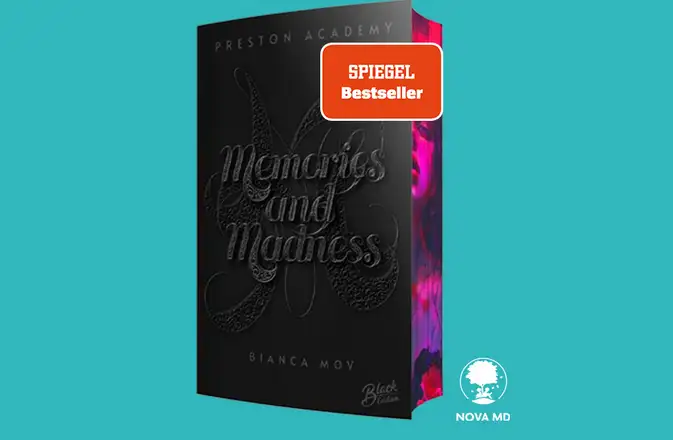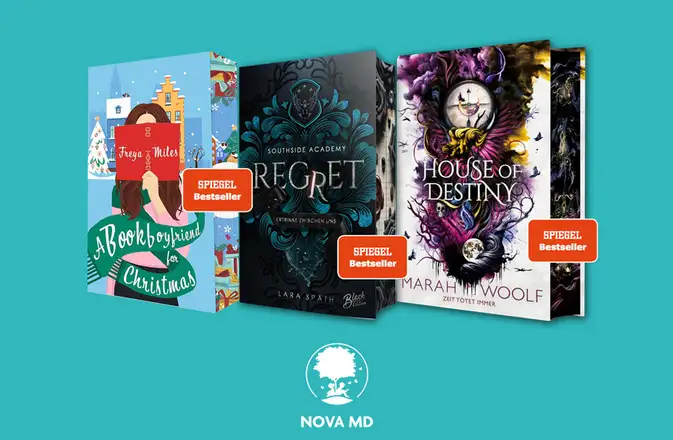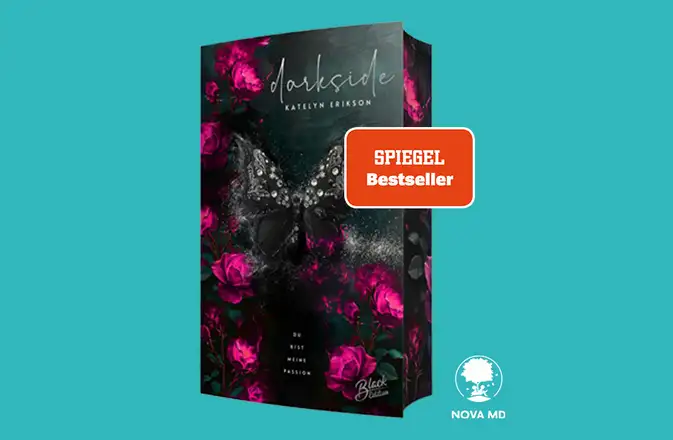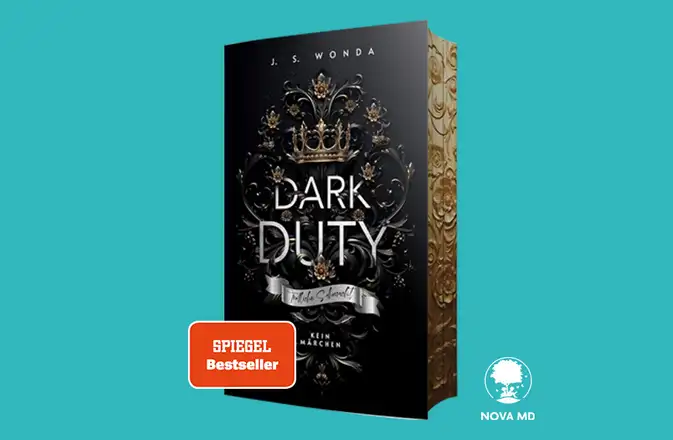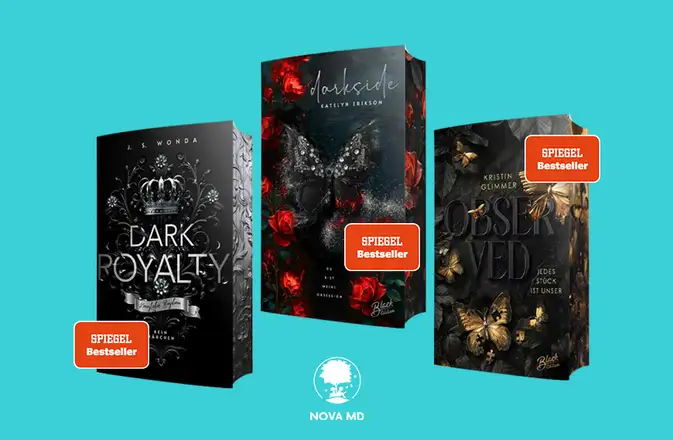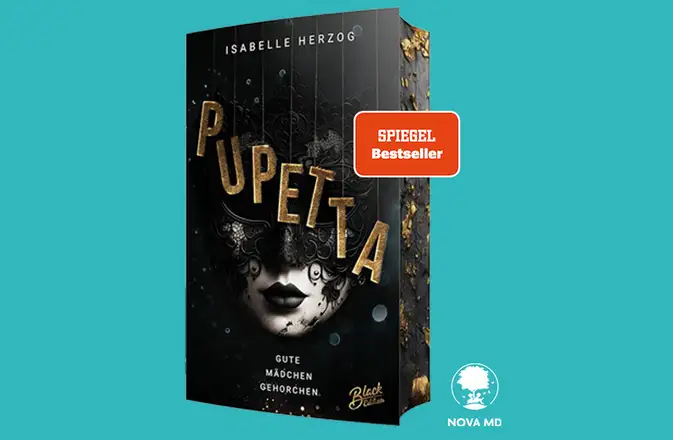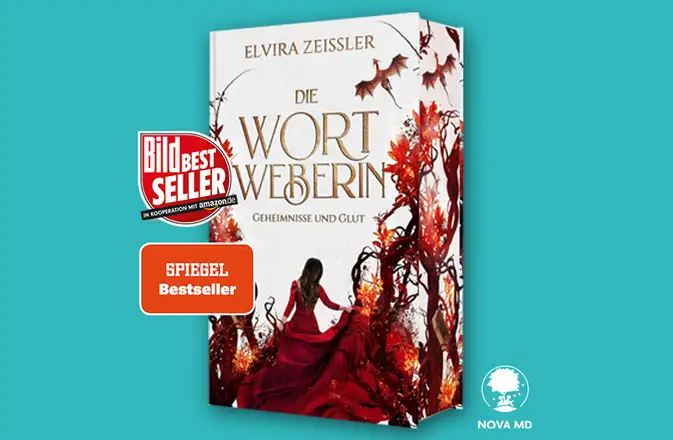Dear Sandy, how did you get into writing?
A burnout and several near-death experiences woke me up to the fact that I should finally do what I always wanted to do deep down. Writing.
You write motivational novels as Jule Pieper. What do you mean by that?
Strictly speaking, they are advice novels, but that doesn't sound so nice. Because my books are often advice hidden in a funny novel with a lot of self-irony. You can read the book and just laugh, shake your head at the protagonist and carry on with your life as before. Many of my readers, on the other hand, watch my protagonist change her life and improve it step by step. They automatically start to ask themselves what they want, what they don't want and what they could do to achieve their dreams. A side effect can be that clothes are mucked out or even the toxic husband.
You don't just write motivational novels, but also thrillers as Sandy Mercier? How do the two genres go together?
For me, the mix of genres is a valuable balance. I process my real emotions in thrillers, which isn't always easy. Because I relive the feelings while writing. After that, I need something light again and my ironic side wants to let off steam again and process my favorite topics: Personal development, mindset work, becoming happy.
How do the two genres get along? Is there a common component for you?
Although the genres couldn't be more different, they have one thing in common: it's always about women who have hit rock bottom and fought their way out of it. Therapy and mindset work always feature somehow. So you can also read one of my thrillers and find tips on how to deal with panic attacks, for example.
Why did you decide on an open pseudonym?
I was advised by experts that I should keep thrillers and motivational novels/guidebooks separate so as not to confuse them. That's why I decided to enter the book market with two names. I'd already had experience with a closed pseudonym, one where the reader never knows it's me who wrote the book, and that felt awful - like hiding. If your identity is never allowed to come out, then of course that makes sense, but with my books, everyone can know that it's me writing them.
So I decided on an open pseudonym so that it's always clear who the readers are dealing with. I find marketing so much easier because I can show myself.
You are a passionate self-publisher. Why did you ultimately decide to do this?
One of my most important values is freedom. As a self-publisher, I can choose who I work with, what I write and when I publish a book. I can also see directly which marketing measures have worked and which haven't and learn a lot in the process. However, the most important reason at the time was time. I wanted to be able to make a living from writing and couldn't afford to only receive money once or twice a year. I needed it every month and I needed it immediately because my rent had to be paid. So waiting was not an option.
How has the reputation of self-publishers changed in recent years? Especially in relation to booksellers?
I think there's still a lot of change going on. Some booksellers still look at you the wrong way, others display the books as recommendations. I'm confident that this will continue to improve.
What is your favorite marketing channel?
Instagram. I'm close to real people there and it's also a lot of fun.
You publish your eBooks via Amazon KDP and your print books via Nova MD. Why did you choose these two providers?
For me, these are the only real alternatives for earning money with my books. Amazon offers many great opportunities for authors to market their books. And Nova MDdoesn't just standfor self-publishers in the book trade like other distributors do, which gives us a much better chance. As I said, not all booksellers are yet convinced that self-publishing can be professional.
What I also think is great: I can look for a printer myself and therefore also have much lower costs than if I were to do it with other distributors. And again, there are great opportunities for advertising.
You offer author coaching. What does a collaboration look like and who is the offer aimed at? Self-publishers or also publishing authors?
I offer individual coaching and this year I launched the program: Write YOUR book of a lifetime. This is an intensive ten-week program. I help authors to build a successful writer's identity. It's personality development, so to speak. It's about craft, writer's block, marketing and also a lot of mindset work, because I believe that success depends on it.
So basically, it doesn't matter which path you take. In the program, I also go into more detail about the differences and help you make a decision, because a different path is suitable for everyone. Since most marketing tools are also important for publishing authors these days, everyone can learn how to market themselves and their books better.
In working with your coachees, have you found that there are typical rookie mistakes?
Oh yes. I've made them all myself. That's why I think it's so important to work with coaches, because they prevent you from making them. It's like taking a shortcut. A great example is professionalism. People are always cutting corners on the cover or proofreading, sometimes they do it themselves or have it done by someone who can do graphics or is a German teacher, and then the self-publishers are sad when the book doesn't sell.
How can people contact you for coaching?
Simply via Instagram or my website https://sandymercier.de/coaching or send an email to: sandy.mercier@schreibenumzuleben.de
You can findSandy's and Jules' books at your local bookseller and online at Amazon, Thalia & Co.


